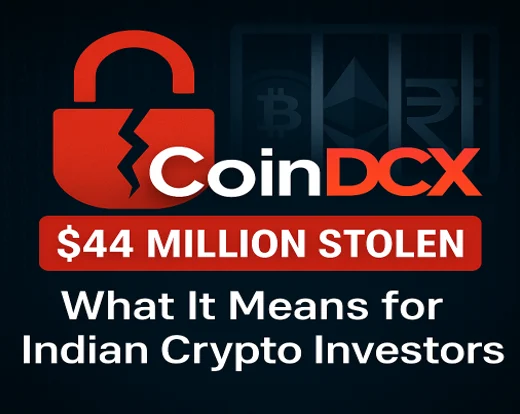
In recent years, the concept of blockchain technology has gained widespread recognition due to its capacity to provide secure and transparent record-keeping. A blockchain is a decentralized digital ledger that transparently and securely records transactions. Apart from finance, blockchain technology has found applications in other fields such as healthcare, supply chain management and real estate.
One area that is ripe for disruption by blockchain technology is the voting system. The need for secure, transparent, and tamper-proof voting has become increasingly apparent as concerns about election interference and fraud have risen in recent years. Traditional voting systems have vulnerabilities that can be exploited, leading to doubts about the integrity of the results.
In this blog post, we will delve deeper into the idea of blockchain voting and go over its benefits and drawbacks. We will also take into account how blockchain voting can affect democracy and voting procedures in the future.
What is Blockchain Voting?

Blockchain voting is the application of blockchain technology to create a trusted, open and tamper-proof voting ecosystem. Each vote in such a system is recorded as a transaction on a shared, verified blockchain ledger that is available to all network users. Without a central authority or middleman, the system’s decentralised structure enables safe and transparent voting.
The key features that make blockchain voting unique and superior to traditional voting systems include:
- Security: Voting results are secure because of the usage of distributed consensus techniques and cryptographic algorithms. Each vote is recorded as a transaction on the blockchain and before a transaction can be added to the ledger, all network members must concur that it is genuine. As a result, it is nearly difficult for one person or group to influence the voting process.
- Transparency: By using blockchain technology, the voting process is made transparent and accessible to all network users. By looking at the blockchain record, anyone can check the election results. This openness fosters voter confidence and acts as a potent deterrent to cheating and manipulation.
- Tamper-proof: The immutable nature of the blockchain ledger ensures that votes cannot be altered or deleted once they are recorded. This makes it virtually impossible to tamper with the results of an election.
- Accessibility: Blockchain voting can make voting more accessible for voters, especially for people who have trouble using conventional voting procedures. People can vote more easily from far-off regions thanks to the system’s accessibility from anyone with an internet connection.
Some examples of blockchain voting platforms currently in use include:
- Voatz: Voatz is a mobile voting app that makes use of blockchain technology to establish a safe and open voting environment. The 2018 US midterm elections were one election that the platform was used in.
- Horizon State: A blockchain-based voting platform called Horizon State enables businesses to hold secure, open elections. Numerous elections, including corporate and local elections, have used the platform.
- Follow My Vote: A voting platform built on the blockchain that seeks to offer safe and transparent voting for both public and private elections. For the platform to guarantee the confidentiality and accuracy of the voting process, powerful cryptography is combined with blockchain technology.
Overall, blockchain voting has the potential to completely transform the way we conduct elections by providing a system that is more accessible, secure, and transparent than current procedures. Blockchain voting methods will probably become more and more popular in the future as blockchain technology develops.
Advantages of Blockchain Voting

Blockchain voting offers several advantages over traditional voting systems. These advantages include:
- Security: Security is one of the biggest benefits of using blockchain technology for voting. The technology employs distributed consensus methods and cryptographic algorithms to provide a safe voting environment that completely removes the possibility of fraud and hacking. It is nearly impossible for a single party to influence the voting process because votes are recorded on a blockchain ledger that is shared and verified by all network members. Blockchain voting is therefore a desirable choice for elections when the validity of the results is crucial.
- Transparency: Voting on the blockchain has the added benefit of being transparent. The voting process is transparent and open to anyone thanks to the usage of blockchain technology. By looking at the blockchain record, anyone can check the election results. This openness fosters voter confidence and acts as a potent deterrent to cheating and manipulation.
- Tamper-proof: Blockchain voting is also tamper-proof. The immutable nature of the blockchain ledger ensures that votes cannot be altered or deleted once they are recorded. This makes it virtually impossible to tamper with the results of an election, providing an additional layer of security and integrity.
- Accessibility: Blockchain voting can make voting more accessible for voters, especially for people who have trouble using conventional voting procedures. People can vote more easily from far-off regions thanks to the system’s accessibility from anyone with an internet connection. This may be especially crucial for those who, owing to a disability, illness, or other circumstances, are unable to travel to the polls.
- Efficiency: Using blockchain technology to conduct elections can cut expenses and speed up the voting process. There is no need to print paper ballots or set up voting places because the technology is digital. This is a viable alternative for businesses and governments wishing to streamline their election procedures because it may save a lot of time and money.
In general, blockchain voting has a number of benefits that make it a desirable choice for institutions and governments seeking to hold open, transparent, and secure elections. Voting systems based on blockchain are anticipated to become more widely used in the future as technology develops.
Challenges and Criticisms of Blockchain Voting

Despite the many advantages of blockchain voting, there are also challenges and criticisms associated with this technology. These include:
- Adoption: The adoption of blockchain voting presents one of the main hurdles. Adopting new technology may be a difficult decision for many businesses and governments, especially in a delicate area like voting. Concerns concerning the system’s security, the expense of deployment, and the likelihood of mistakes or faults may exist. Furthermore, some voters might be reluctant to embrace a new voting system, especially if they are unfamiliar with blockchain technology.
- Complexity: The complexity of blockchain voting presents another difficulty. Although the technology is intended to be safe and tamper-proof, some users may find it challenging to operate. Users might need to have some technical understanding to participate in the voting process, which could cause confusion or mistakes. Furthermore, because blockchain voting is still a young technology, there might not be any user-friendly interfaces or instructions, which could make the voting process even more difficult.
- Centralization: The advantages of transparency and tamper-proofing may be diminished if voting on a blockchain is centralised under the control of a small number of strong entities. The blockchain may be manipulated or corrupted if it is controlled by a limited number of people or entities. The technology might not provide the same level of security and transparency as a genuinely distributed blockchain if it is not really decentralised.
The technology’s scalability, the possibility of privacy violations and the difficulties in confirming a voter’s identity are some significant objections of blockchain voting. However, many of these issues might be resolved as technology develops and matures, making blockchain voting a more attractive alternative for safe, open and accessible elections.
Conclusion
Blockchain voting offers numerous advantages over traditional voting systems, including increased security, transparency, tamper-proofing, accessibility, and efficiency. However, there are also challenges associated with the adoption and implementation of blockchain voting, including concerns about complexity and centralization.
Notwithstanding these obstacles, blockchain voting has considerable potential to revolutionize the voting process and enhance trust in democratic procedures. Through the use of blockchain technology, a voting system that is genuinely secure, transparent, and inclusive can be established. Additionally, blockchain voting has the potential to tackle various criticisms and difficulties associated with conventional voting systems, including worries about fraud, tampering, and voter disenfranchisement.
Therefore, we must urge authorities, institutions and people to seize the advantages of blockchain voting and push for its wider adoption. By doing this, we may contribute to the development of a society that is more just and equitable, where everyone’s voice is heard and every vote counts.







